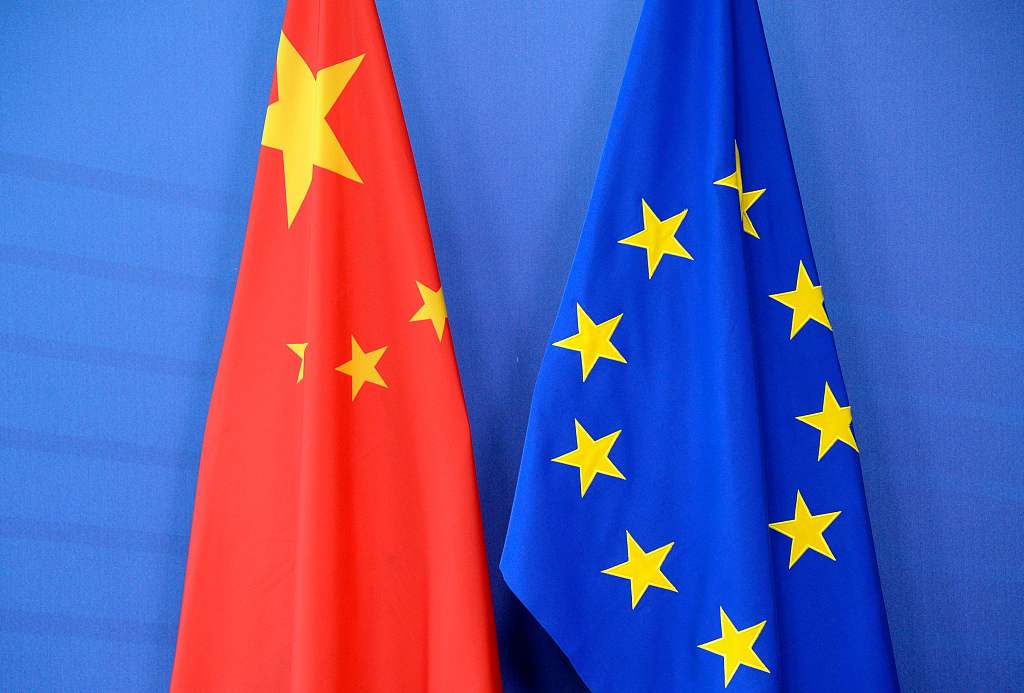China-EU cooperation continues to grow
- By Mitchell Blatt
 0 Comment(s)
0 Comment(s) Print
Print E-mail China.org.cn, January 8, 2021
E-mail China.org.cn, January 8, 2021

The long-awaited Comprehensive Agreement on Investment (CAI) between China and the European Union puts European firms in a position to get a step up on American firms and sends a message to the U.S. that the EU isn't going to kowtow to Washington's agenda.
Over the past four years, President Donald Trump has antagonized both China and the EU. He has treated China with suspicion and fear, and tried to limit its rise. Under Mike Pompeo's tenure as secretary of state, Trump's anti-China agenda reached a precipice, underlying every facet of U.S. policy on China. This kitchen sink approach included Trump initiating a trade war, shutting down a Chinese consulate, imposing sanctions and blocking access to key technologies.
At the same time, he demanded other countries join the U.S. on its grand crusade against China. The idea was that Western capitalist democracies should all have a common interest in stifling China simply because China represents a contrasting ideology and form of government.
However, Trump failed to listen to Europe's needs. Instead, he feuded with Europe in much the same way. He also placed tariffs on European steel and solar panels, with his steel tariffs actually hitting Europe harder than China.
Now, just weeks before leaving office, Trump has once again slammed Europe with new tariffs on wine and airplane manufacturing parts due to an ongoing dispute between the American airplane maker Boeing and Europe's Airbus.
It was counterproductive for the U.S. to attack Europe and China at the same time. The U.S. did not build up any political capital to convince the EU to go along with it, and some analysts say China successfully leveraged the distance between the EU and the U.S. to get this deal done.
But that's not the full story. The EU also does not find China to be as all-encompassing of a threat as the U.S. establishment does.
While Europe does share some of the same concerns about China, its policies have been more measured. The EU must operate on consensus, and European countries do not hold a concept of themselves as the world's police.
Washington diplomats and think tank professionals felt there was the opportunity for a grand coalition to be formed between the U.S. and its erstwhile allies.
Now, however, the CAI deal indicates that Europe will not be going along with the U.S. As one analyst put it, the EU is not going to join one side of a contrived geopolitical struggle – they are going to balance and do what is best for them.
Moreover, the CAI addresses many of the concerns European firms had concerning investment and trade in China. It expands Europe's access to sectors such as automobiles, telecom equipment, cloud-computing and private healthcare, protects the intellectual property rights of EU firms, and creates dispute resolution mechanisms. At the same time, it also expands Chinese access to manufacturing and renewable energy in Europe.
China and the EU have been cooperating on energy for many years. The EU-China Roadmap on Energy Cooperation outlined a goal to "contribute to the transformation of the energy system, to the sustainable development of the global energy system and to energy and climate resilient investment." At the latest EU-China Leaders' meeting in December, both sides agreed to continue cooperating on climate change and effectively implement the Paris accord. That is one particular area where the Biden administration is actually in agreement with the EU and China – Biden is expected to rejoin the accord.
Reaching this important agreement on investment shows that international cooperation is not dead. It is, in fact, the way forward.
Mitchell Blatt is a columnist with China.org.cn. For more information please visit:
http://www.china.org.cn/opinion/MitchellBlatt.htm
Opinion articles reflect the views of their authors, not necessarily those of China.org.cn.
If you would like to contribute, please contact us at opinion@china.org.cn.






Go to Forum >>0 Comment(s)